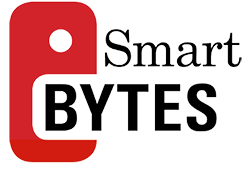Unique Challenges of 2e Students
April 29, 2024

By Laura Heneghan, Esq.
As a special education attorney representing parents, this is something I encounter frequently: In an IEP or other meeting, the school team often refers to the parents as Mom and Dad rather than by their first or last name. While some may dismiss this as a minor detail, the impact can be significant, affecting how parents are perceived and, consequently, their ability to advocate effectively for their child.
To ensure that you are taken seriously as an equal member of the team, others at the table need to listen and respect what you are saying. They also need to recognize you are the prime authority in that room on your child. When the team uses Mom or Dad, they are lumping you in with every other parent who has sat in that seat and choosing not to recognize you as an individual with authority.
Nobody else in that meeting is being referred to by their title. I can think of no other setting where societal norms dictate that Mom and Dad are appropriate terms of address in a professional meeting. Doing that sends the message that parents are not worthy of the team knowing who they are. While that may not be the intent, it is the result.
How do you handle this in real time? One of the first things done in any meeting is the introductions, so think about how you introduce yourself. Many parents set themselves up by saying, “I’m Joy’s mom,” and sometimes include their first name. Instead, take the opportunity to assert your role and confidently state, “I am Millie Smith, mom to Joy, and here as an equal member of the IEP team.” You aren’t being belligerent or hostile, but you are setting a tone for how you will be spoken to and treated.
I always let my clients introduce themselves, and throughout the meeting, I will refer to them as “my client” or “Millie” or “Ms. Smith.” Sometimes the person running the meeting will do all of the introductions and typically save the parents for last. If you hear “and Mom and Dad” use that as your opportunity to state your preference.
When the team starts to refer to you as Mom or Dad, politely interrupt and say “I would prefer not to be referred to as Mom, but please call me Millie.” If it persists, consider a lighthearted suggestion of referring to everyone by their function, highlighting the inconsistency in how parents are singled out.
If my client seems hesitant, I will jump in and politely ask that the team refer to them by their name, not their function as nobody else in the meeting is being referred to by their function. If it persists, the other tactic I use is to slowly and more loudly use the correct term until it gets through.
What can you do ahead of time? Many, if not most, meetings are still on a virtual platform. So check your name when you log in or in your profile for that platform, and make sure it doesn’t say “Joy’s mom.”
In the realm of special education, effective advocacy begins with establishing respect and recognizing the unique contributions of each team member. Being addressed by your name rather than as Mom or Dad is not just a matter of semantics; it’s about fostering an environment of equality and collaboration. By proactively setting the tone and addressing this issue in real time, parents can ensure they are seen and heard as essential partners in their child’s educational journey.
Laura Heneghan is a special education attorney and advocate for families of children with disabilities. Her practice is in Fairfield, CT.